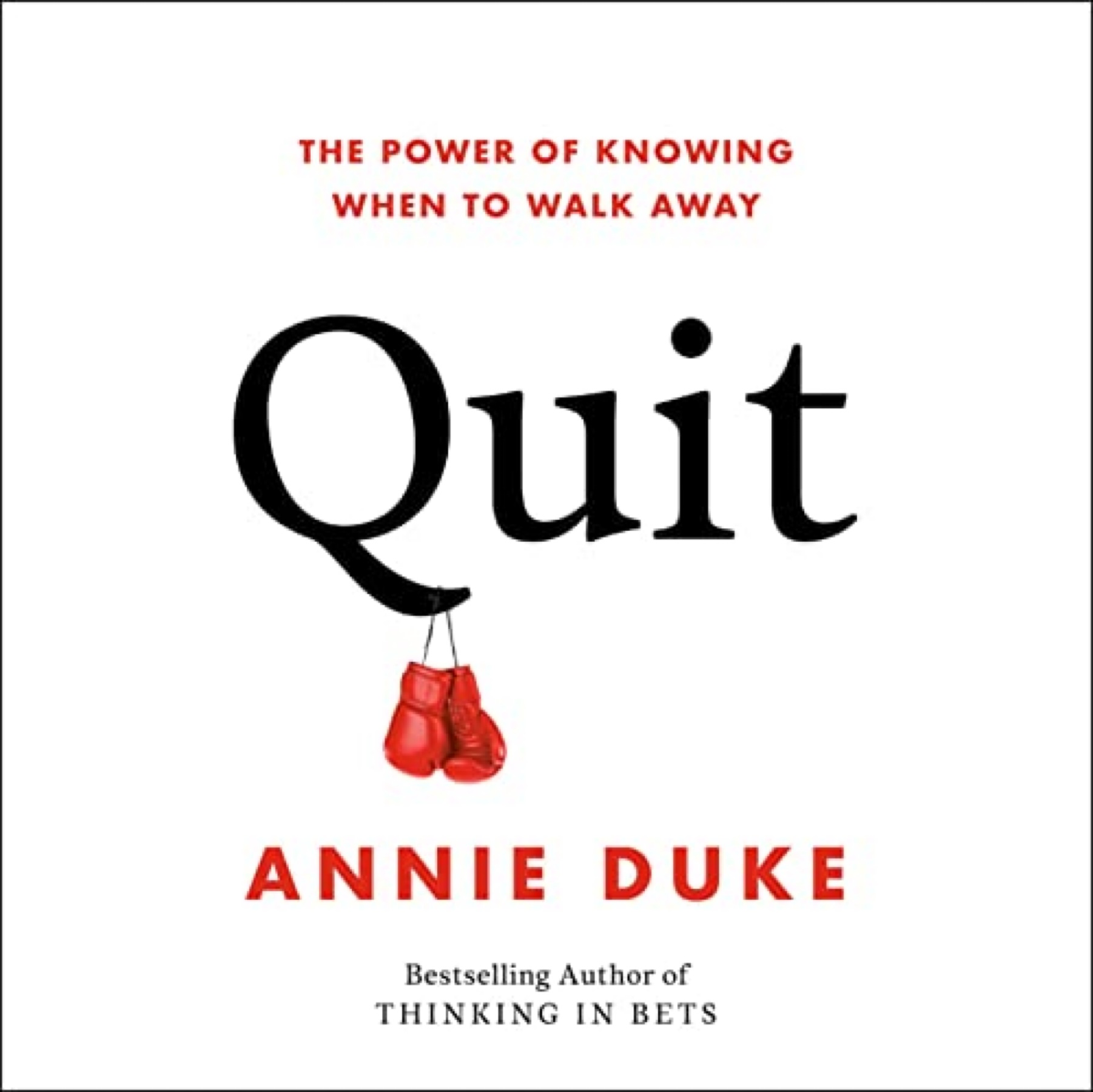
Quit: The Power of Knowing When to Walk Away by Annie Duke
goes beyond winners never quit to winners quit a lot. Everyone should read this to avoid sticking with goals that become no longer worthwhile. Grit can help you reach worthwhile goals, but it can also help you stick with goals that are no longer have positive expected value. Every school should have a copy in its professional development library.
Prologue: The Gifted Scale
- Success lies in picking the right things to stick to and quitting the rest. Just because you stubbornly stick to something doesn’t mean you will succeed at it. Unfortunately, quitting almost uniformly has negative implications, while being gritty and staying with something is considered in a positive light. The science of quitting spans disciplines from economics to game theory to behavioral psychology.
Section I: The Case for Quitting
1. The Opposite of a Great Virtue is also a Great Virtue
- On Mt. Everest, there is a quitting plan. It goes if you haven’t reached your goal, the summit or a camp higher up, by 1:00 pm, turn around. Over the years, people who have ignored this plan have been much more likely to die, as you are eight times more likely to die on the way down. In Silicon Valley, the motto is Fail Fast. Since most projects fail, knowing when to quit is key in terns of conserving resources.
- Luck often plays a big part in success. When we make a decision, we usually don’t have all the information we need. As we move forward after making a decision, we need to be constantly on the lookout for new information. As new information arrives, be sure to analyze it as it may point toward quitting or changing course. Once you quit, you won’t know what would have happened if you didn’t. You need to be ok with that. In poker, this is like folding hands that would have won. This is why pros play about half as many hands (15-25%) as amateurs (50%).
2. Quitting on Time Usually Feels Like Quitting Too Early
- We start with an owner of a computer game that appears to be successful as he’s adding players at 7% a week. When he sees that new players are much less likely to stick, he can see it will be a money pit and quits. The key concept here is to calculate expected future value be it a function of money, happiness, or anything else. This requires some mental time travel. This involves educated guesses and thinking like a poker player.
- You also need to look for clues from the past, be it your past or someone else’s. When a decision to quit is near 50-50, quitting is more likely the best choice. This includes big life decisions. If you are unhappy in a situation, you are likely to be unhappy in the future. This should make quitting an easy decision. Many athletes and TV shows have lingered too long. Those that went out on top are usually thought to have quit too soon. They didn’t.
3. Should I Stay or Should I Go
- Studies of cab drivers show that they generally use the wrong heuristic for deciding how long to drive. Most drive until they have reached an income goal. That means that they often stop when conditions are good and keep driving longer shifts when conditions are poor. Experienced cab drivers tend to do better. They seem to understand the concept of expected gain.
- The same is not true for professional stock traders. While they tend to make good buying decisions as they have studied the assets they are buying, their sell decisions are not as good. These people usually sell something to free up money for things they want to buy. What they sell tends to be either stocks that have gained the most or lost the most. They are not doing expected gain analysis. What they should also do is follow the sold stocks closely to get feedback on their decisions. Most don’t.
- For most decisions we make, feedback is hard to come by. If you change majors, colleges, or jobs, all you have is what if questions. We also tend to have a greater negative emotional impact for losses than positive emotions for gains. This loss aversion creates a preference for options associated with a lower chance of loss.
DrDougGreen.com If you like the summary, buy the book





